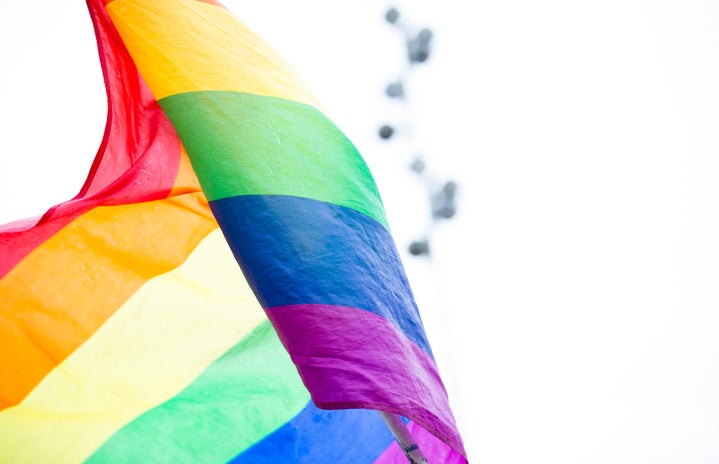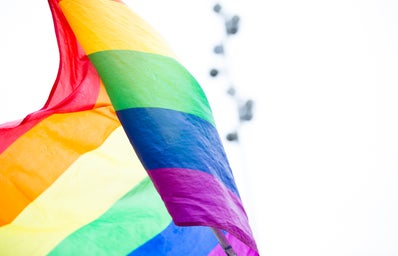The first time I heard the terms “aromantic” and “asexual,” I was in grade nine. I’d just come out as bisexual and was learning more about LGBT+ identities. It was around the same time that I learned about the transgender and non-binary spectrums; it was the start of a long journey.
Nowadays I identify as a biromantic asexual: somewhere on the aromantic spectrum. Essentially, I’ll date people regardless of gender, but I’m not interested in sex, and I won’t always develop romantic feelings for people I date. When I explain this to others, I’m usually met with some hesitancy and confusion. The number of times I’ve had to explain my sexuality to people is astounding, but it’s become a part of my existence. Unfortunately, so have the more demeaning questions.
I’ve identified as asexual since I discovered the term. It just clicked. The more I read into it, the more I was certain. I learned terms like “sex-repulsed” and “sex-positive,” and how they help communicate to allosexuals (people who experience sexual attraction) your general relationship to sex without being too invasive. And trust me, the moment you tell someone you don’t feel sexual attraction, the questions can get very invasive. I’ve had people tell me that it’s not real, that I’ll grow out of it, that I haven’t met the right man (notice how they never say woman), that there’s something wrong with me and/or that it’s not natural. If you can imagine it, I’ve probably had someone say it to me. Being able to shut people up by saying I’m sex-repulsed is nice; it’s assertive and doesn’t leave room for casual discussion because people always (wrongly) assume there’s a story there. The point is that asexuality just made sense to me. When all my friends were developing crushes and waiting on firsts, I was more focused on other things. Where others were calling famous actors hot or sexy, I was always just confused because all I saw was a person. I got teased a lot for that one and I was constantly told that one day, someone would change my perspective.
It’s been seven years. No one’s changing my perspective.
Identifying as aromantic has been more of a journey. At this point, I’ve pretty much established that I’ve never had romantic feelings for anyone. My first girlfriend asked me out and expected a relationship when I was impartial to it, and all I knew was that I enjoyed her company. Every guy I’ve dated asked me out and approached me first. I’ve never sought out romance nor felt the need to. I’ve never gotten to know a person and thought, “Oh, I love this person romantically.” For me, I just love people. The way I feel about a significant other is the same way I feel about my close friends. A lot of people have told me I shouldn’t date people if that’s the case, that I’m leading them on and in a way I understand. But I also think if I’m willing to settle down with someone, it shouldn’t matter how I love them. Lots of longlasting relationships devolve into friendships because romantic love is a fickle thing and feelings can morph into something else. If happily married couples can admit that they love their partner more as a friend, why can’t I be that way, too? Why is it inherently bad and inhuman for me to just love someone the way I love them?
Of course, regardless of my opinions on the matter, I’m always honest with the people I date. The reality is that I’m asexual and on the aromantic spectrum. That might be a dealbreaker for someone and if it is, why would I want to be with them anyway? I know that if I say I’m probably not going to have sex with a partner that a lot of people won’t want to date me. Even if they do, somewhere down the line they’ll get tired of it because the reality is that society has taught us that sex is an integral part of a relationship. And if those people wouldn’t be okay with me not being interested in sex, imagine how they’d react if I told them I don’t love them the way society expects significant others to love each other. The reality of my dating life is that who I am as a person is a dealbreaker for a lot of people. Things that are an integral part of me will be, have been and continue to be a reason some people decide not to date me. And that’s okay.
Part of the dating scene when you’re asexual and aromantic is having difficult conversations and being incredibly honest about feelings and expectations. It means talking to people about what they want out of a relationship and not forcing something that won’t work. A lot of people would rather not have those conversations. I don’t have a choice.
I’ve spent most of my life explaining my sexuality to strangers. I’ve talked about my relationship with sex and love to people who barely know me because when I say I’m asexual and aromantic, people demand to know why. I’ve never had a satisfactory answer for that and I don’t think I ever will. But that’s the biggest part of dating when you’re aromantic and asexual: having conversations over and over again until you find someone willing to listen, and willing to give you a chance.


